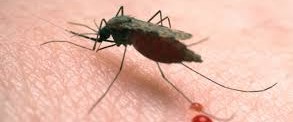Completed PhD works:
Ellen Viste: The Ethiopian weather is influenced by large-scale and seasonal features of the tropical atmosphere. This study will look at the moisture transport and other driving forces of Ethiopian rainfall. (University of Bergen, 2012)
Adugna Woyessa: The epidemiology of highland malaria in Ethiopia: a study from Butajira area. (Addis Ababa University, 2013).
PhD students attached to EMAPS
Eskindir Loha: The aim of this work is to learn more about malaria transmission in South Ethiopia. We shall carry out epidemiological studies in Chano area near Arba Minch to study reasons associated with malaria incidence.
Abebe Animut shall describe the malaria mosquitoes in the Butajira area. He shall collect mosquitoes from homes and surrounding areas at different times of the year, to find out which species are present and how they interact with humans.
Korecha Diriba: This part of the project will involve studies to link large-scale climate and weather with the local weather experienced in Ethiopia. He aims to find out how well local weather can be predicted on a seasonal scale, thus telling the public if it is possible to forecast weather-related malaria outbreaks.
Dereje Tesfahun: Malaria develops if there is water on the ground. Rainfall provides this water, but other hydrological parameters determine whether the water remains in the area. This study will consider how ground conditions influence surface water distribution.
Torleif M Lunde: This research part aims to develop mathematical models to predict local and short-term variations in malaria transmission.
Fekadu Massebo: His PhD work (A study on mosquito dynamics and vector control in a holoendemic area for malaria in South Ethiopia), aims to study the diversity, distribution, density and behaviour of Anopheles mosquitoes in Southern Ethiopia and to evaluate if screening houses reduces malaria transmission in households.
